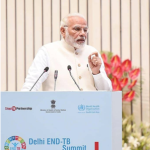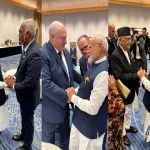At the Quad Foreign Ministers’ meeting, the four member countries of the grouping released a joint statement which amply addressed their common concerns with regard to China’s belligerent posturing in the Indo-Pacific. The Quad members have long resisted the notion that the formulation of the grouping is directed at countering Beijing, instead emphasising that it seeks to harness the emerging opportunities of collective cooperation in the Indo-Pacific. There is no denying, however, that the China factor is a critical cog in the Quad wheel. The latest joint statement released by the Quad countries evidently suggests that concerns regarding China’s overtures in the Indo-Pacific appear to be taking centre-stage in the thinking of the grouping. The joint statement expressed concerns over the evolving situation in the East and South China Seas, alluding to China’s unilateral actions by use of force and coercion. The statement decried, without naming, Beijing’s use of coast guard and maritime militia in the South China Sea attributing it to ‘dangerous manoeuvres’ in the region. External Affairs Minister Jaishankar’s individual remarks about the state of India-China relations have further garnered attention. Upon being questioned about India’s relations with China, Jaishankar unequivocally stated that the bilateral ties between the two neighbours are ‘not doing very well’. This admission appears to present continuity in India’s enduring pushback against China in light of border skirmishes and conflict since 2020. However, in the Indo-Pacific context, a shift appears to be underway in India’s approach towards China. In the past, India’s response to China’s aggressive overtures in the Indo-Pacific had remained relatively subdued. In its stead, Jaishankar’s recent comments at the Quad summit and the joint statement demonstrate India’s willingness to push back against China in the Indo-Pacific context as well. The question arises, what explains India’s pushback against China’s unilateral actions in the South China Sea? Even though the South China Sea geography does not fall under India’s primary maritime area of interest, it remains vital for India’s myriad strategic interests, such as the protection of Sea Lines of Communication (SLOCs), energy security, etc. Moreover, India’s sustained advocacy for a free, open, inclusive, and rules-based order at sea, emphasising the need for adherence to the United Nations Convention on the Law of the Sea (UNCLOS), makes it imperative for New Delhi to respond critically against Chinese attempts to change the status quo in the region. Within the wider Indo-Pacific, China’s continued attempts to foray into the Indian Ocean region, more recently by way of sending survey and surveillance vessels into the region, have prompted an enduring security dilemma in New Delhi, of People’s Liberation Army Navy’s (PLAN) imminent launch of carrier task force patrols in the Indian Ocean by 2025. Thus, upping the ante against China in the Indo-Pacific appears to be a logical progression in India’s continued efforts to counter Beijing’s advances in geographies of India’s core interests at sea. Notably, Jaishankar has displayed nuance and complex thinking in India’s plans to counter the multipronged challenge that China poses. While on the Indo-Pacific front, India has sought to actively engage in minilateral groupings to counter China, upon being asked if New Delhi would encourage third-party intervention for the resolution of the India-China territorial border conflict along the LAC, Jaishankar reiterated that only bilateral engagement based on ‘mutual respect, mutual interest, and mutual sensitivity’ can restore normalcy. The message is clear: New Delhi will not relent in pressing ahead with its pushback against Beijing even as the door is open for China to recalibrate its anti-India positioning.
India’s Message to China

Sign Up For Daily Newsletter
Be keep up! Get the latest breaking news delivered straight to your inbox.
By signing up, you agree to our Terms of Use and acknowledge the data practices in our Privacy Policy. You may unsubscribe at any time.
Leave a Comment Leave a Comment
Stay Connected
Latest News
Recent Posts
- LOP Sunil Sharma exposes Omar Abdullah-Led NC Government for failure in providing Relief to Flood Victims
- “Friendship, trade, cultural linkages”: PM Modi recalls India’s relations with nations as he met world leaders at SCO reception
- Police takes cognizance against 3 individuals for planting fake IED to implicate an innocent man in Baramulla
- ‘Songs of Paradise’ trends globally; Danish Renzu’s film revives Kashmir’s musical glory
- MeT predicts rain with thunderstorms in J&K during next few hours







